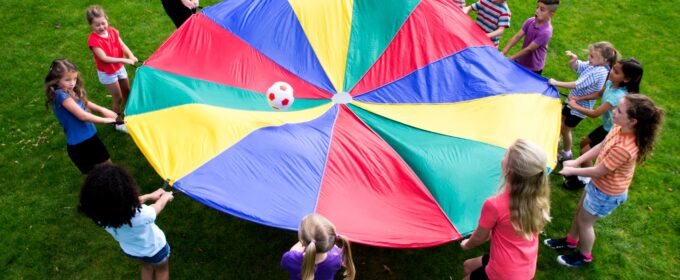Policy dialogue around children, young people and education often focuses on either wellbeing or attainment. But play is a fundamental part of childhood and adolescence, recognised as fuelling learning, development and wellbeing. The establishment of the All-Party Parliamentary Group (APPG) on Play could mark a turning point by placing play higher on the political agenda and inviting evidence-informed recommendations. Drawing on their research, Dr Sarah MacQuarrie, Dr Cathy Atkinson and Dr Amy Phillips outline why play matters, what barriers exist, and what policymakers can do to embed play in children’s daily lives.
- Access to green space is important for play – but this access can be limited if children live in areas of deprivation or if schools lack access and resources.
- Research from The University of Manchester supports calls for play sufficiency duty (where local planning authorities embed opportunities for children’s play into planning functions).
- Access to play can be facilitated by both planning and education policy, with resources, training and spaces all crucial considerations for developing legislation.
From urban deprivation to free play in nature
Urban children are often regarded as being deprived of contact with nature – but access to green spaces has clear potential to address this need. Playful nature-based experiences can have a lasting impact on children, parents and their wellbeing with minimal impact on the local green space.
The role of nature to foster learning and meaningful play for children and young people can be created sustainably and with ease in green spaces as our research has explored. Spaces that encourage play are often designed foregrounding particular requirements, such as durability of equipment and reducing trip hazards and contrast with “untamed” play spaces. However, free play that takes place in contact with nature, in an era of hyperconnectivity, can be achieved -and is beneficial for parents and young children.
Resources and support – everything to play for
By embedding play in education and community planning, policymakers can help address inequalities, support recovery from the impacts of COVID-19, and foster healthier, happier childhoods. Schools and education professionals need access to training, storage and supply of suitable resources as well as support in implementing play. Too often green spaces are tied to the expectations of a school garden or fixed to an environmental agenda.
Research at The University of Manchester has found that supporting schools to have ease of access to local green spaces is crucial – but is often constrained by practical considerations such as lack of budget to provide another staff member to walk with children or lack of a suitable vehicle if transport is essential. These barriers continue to add to the burden that teachers and education professionals manage each week.
International research shows that wellbeing and the relationship we have with our environment, local communities and green spaces can be enabled and enhanced by ensuring that schools are supported in enabling such provision. A priority is to give attention to the spaces and environments that can be enriched so that they support wellbeing and children and young people’s experience. Members of Parliament have tabled an amendment to the Planning and Infrastructure Bill, calling for a statutory Play Sufficiency duty to be embedded in law. This recognition that local green spaces are essential for children and young people should be embedded within education policy and school funding arrangements and underpin this play sufficiency legislation as it is developed.
Realising the right to play for every child, every day
Our recent work has shed a spotlight on evidence and examples that emphasise a connection between play, physical activity and mental health. Inequalities remain for children whose local area has limited spaces that are conducive to play, and this is doubly difficulty when children and young people have additional needs.
While play can support learning and the development of many skills, it should be prioritised as a right and be child-led. Public policy needs to recognise children and young people’s voices and use this insight to guide and shape provision. Thus, implementation of policy and guidance should position and recognise article 31 of the United Nations Convention on the Right of the Child as a fundamental feature of children’s and young people’s lives. The work of the APPG on Play is a timely opportunity to ensure that every child has access to safe, nature-based, inclusive, and meaningful play — every day.
Pressing ‘play’ on policy actions
Children and young people need to have a voice in the play that is offered to them – this should be recognised by the APPG on Play as an opportunity to support and enhance play agendas and provides an opportunity for consultation and engagement.
In order to embed play in policy, it should be recognised and clearly positioned in ongoing legislation. The amendment to the Planning and Infrastructure Bill is a positive first step but we note that the Children’s Wellbeing and Schools Bill makes no reference to play. Legislators should address this and consider the importance of play when developing policy that directly impacts children and young people.
Policymakers can also embrace local knowledge and solutions and learn from the devolved nations. The play sufficiency legislation and procedures in Scotland and Wales could be adapted for England – for example, local authorities in Wales are required to complete a play sufficiency assessment every three years.
Finally, the Department for Education should support schools to promote play. This can involve the provision of training, resources and funding to support nature-based play in everyday school life. Protecting playtime is also important and legislation should be established to safeguard break and lunchtimes as vital times for free play. Removal of playtime should never be used as a sanction.
Ongoing training and support for schools should be endorsed and form a core element of provision so that play and nature experiences are recognised for their value and contribution to children’s development.
